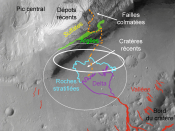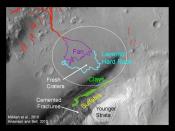Producing both beneficial and harmful outcomes, curiosity seems both a vice and virtue in The Arabian Nights, specifically in "The Third Dervish's Tale". Its effects are contradictory, which produces an ambiguity around the nature of curiosity. This ambiguity reflects the theme of Fate versus free will by creating situations that lead to questions, specifically, "How much of one's life is controlled by destiny and how much is controlled by choice?" but this question is answered by more ambiguity. Even though the answer is indeterminate, its implication is significant: humanity is incapable of understanding greater forces like Fate, free will, and curiosity. Thus, curiosity develops the theme of Fate versus free will, which in turn, expounds upon the larger theme of human limitations.
In the first episode of the third dervish's tale, curiosity dictates his actions, which portray the powers of free will and Fate. Initially, his curiosity to explore the islands leads to simple pleasure: "One day I decided to go on an excursion to the islands, and I...went
there, enjoyed myself, and came back" (114). The narrator states "I decided," suggesting that the dervish was in full control of his actions and consciously chose to explore, which is an example of his free will. Furthermore, since his city stands "on the shore of a vast sea that contained many islands" (114), his curiosity takes the form of a keen awareness of his surroundings, which is good because a king should be aware of his kingdom; thus, initially, his healthy curiosity allows him to gain more knowledge about his kingdom. However, his curiosity expands into desire, and "driven by a desire to give [himself] to the sea," (114) he leaves his kingdom. The wording of his motivation, "a desire" instead of "his desire" suggests that he does not...


